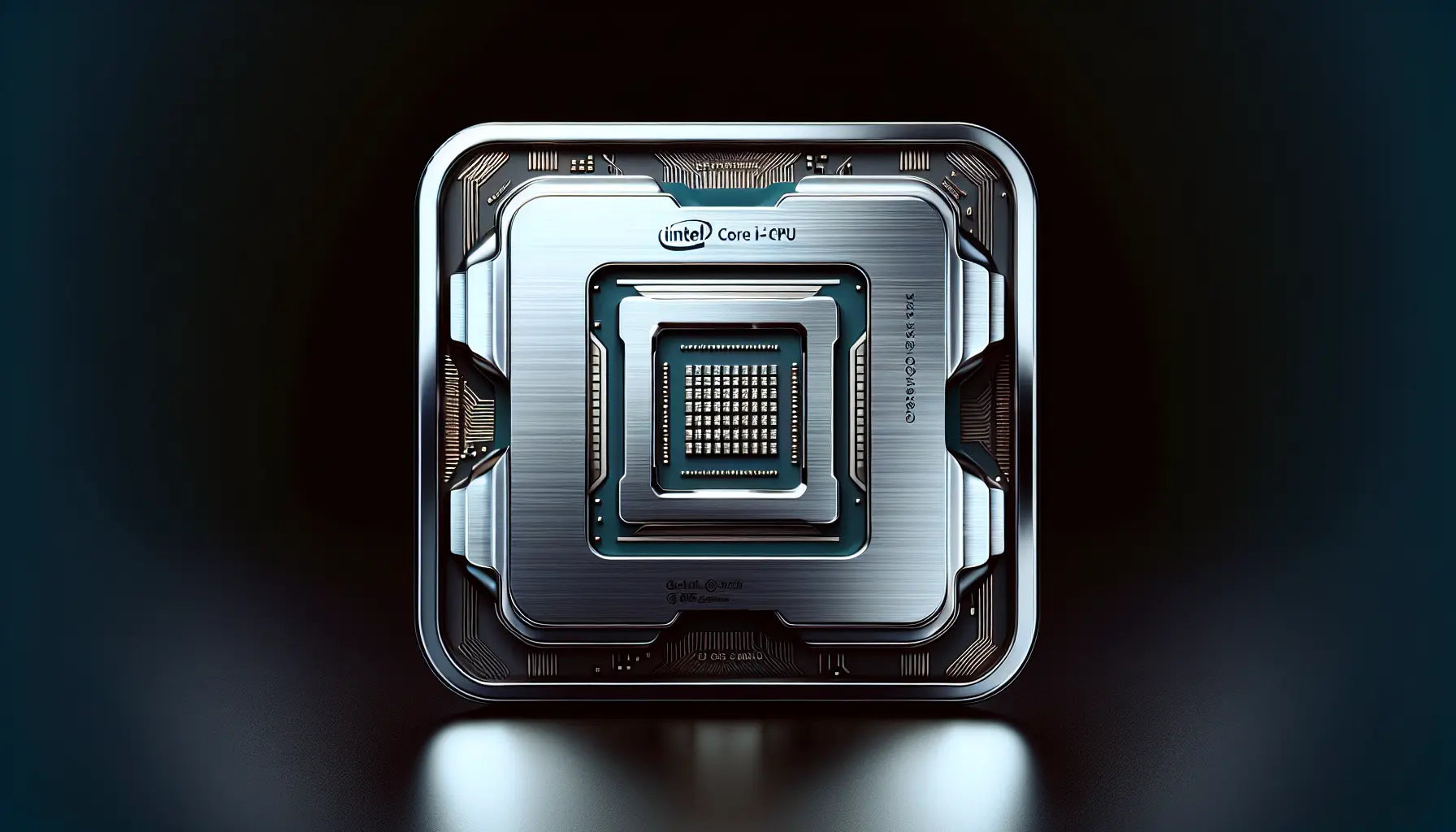Introduction
This latest release from Intel, with a maximum turbo frequency up to 6.2GHz represents another powerful blow landed against its competitors. This new processor is a step up from the 14900K model with slight improvements in the core frequencies and power ratings. But at such high price, even though it be high performance, its value and practicality for everyday consumers has come under question. In this article, we'll move forward with the Intel Core i9-14900KS,exploring its features, performance, and pricing and provide you with a balanced view on whether this might make an appropriate investment for the lovers of digital technology.
Key Features of the Intel Core i9-14900KS
The following are essential features that come with the launch of the Intel Core i9-14900KS:
Max Turbo Frequency:
The Intel Core i9-14900KS is debuting with a max turbo frequency of 6.2 GHz, which is a remarkable high performance that ideally assumes high-speed performance requirements. In layman’s language, the max turbo frequency of the Intel Core i9-14900KS is high enough to power intensive tasks or applications.
Core Design:
The processor has a 24-core design with 8P cores and 16 e-cores. The above design ensures a power and work efficiency balance across the diverse computing needs. Power Ratings. The base power rating of the Intel Core i9-14900KS processor has risen from 125 to 150W; this is the power that the system requires to perform.
Cache and Memory:
The processor still holds the same L# and L2 cache as before, data access and storage efficiency. in addition, memory specifications remain unchanged. Panasonic Users can order a variety of memotpc coufigarations with which to match hem.
Better silicon:
The Intel Core I9-14900KS is almost certainly using better-binned silicon, which is why it can achieve a maximum clock speed 3% higher than its predecessor in ideal conditions.
In summary, the Intel Core i9-14900KS is a leading processor that exhibits both impressive speed, power and efficiency. It is an unbeatable choice for enthusiasts and professional users in today's world of high speed computing and dual-boot playtimes alike.
Comparison with Previous Models
Intel X-Series (Intel Core i9-14900KS) outshines its relative, excluding the 14900K model, and has a lot more under the hood. Quarterly releases of G5 processors mean marginal performance gains in basic clock speeds and electricity consumption but at a significant price point increase. For instance, here is the comparison between the newest 14900KS and latest previous models, the 13900K and 13900KE.
Technical Specifications:
Looking at the 14900KS vs 13900K and 13500KS, some important similarities and distinct features emerge.Here's a breakdown:
• 14900KS is a new member of the 13th generation Core Series which features a new maximum clock speed of 6.2GHz that is up from 6GHz of the 13900K and 13900KS prior.
• The reversed-engineered is the same core structure of the 14900KS and the 13900K i.e. 24 cores of which 8P cores and 16 e-cores.
• The bae power rankin o 14900KS has been increased fro 125 to 150ww, with the maximum turbo power of 253w aanee as 13900k an 13900ks.
• The 14900KS memory limitations are the same as in the 13900K and 13900KS, so you have no reason to get worried about the functioning of your multicomponent system based on the new Intel Core 14 series.
Improved Silicon:
Silicon chosen for a 14900K would be binned better, increasing the overclock stability by a whole 3%, enabled by 300MHz higher clock speed compared to previous generation processors.
Pricing and Value:
As for the 14900KS pricing is the major distinction from the earlier types. The cost of the 14900KS implies the price being Dhs.2,570.68, which is 17% higher than that of the 13900K and, that of the 13900KS cost Dhs.1,920.67 being the lowest. This amount makes 14900KS half more costly than the 13900K and 58% more expensive than the 13900KS, even though it delivers a barely visible change in clock speed and better binning.
Performance and Real-world Differences:
Performance and differences in practical useIn comparison to the 13900K, Intel claims that the new 14900KS can offer an additional 7% performance. But don't forget: The 14900KS on which this comparison is based was equipped with Intel's application optimization setting. Whether or not this is actually reflected in real-life differences remains to be seen. What's more, when Intel compares its 14900KS against the 7950X3D in game tests you have to start asking questions: Why not use the fastest Ryzen processor for gaming, the 7800X3D, instead? It makes you wonder exactly what advantages lie hidden within this machine that are all its own. Ultimately, the 14900KS is a quandary for consumers: its lofty price may well not be worth the marginal performance gain over its predecessors. Tech heads and experts will need to give it their full consideration whether the slight improvements in clock speed and silicon quality are worth the premium price of the 14900KS.
Pricing and Cost Analysis
With a price tag of Dhs. 2,570.68, the Intel Core i9-14900KS is a significant markup on the 13900K and 13900KS versions. This means 20% higher prices compared with 13900K models and 34% higher than those of their successors. It is not just the marginal rise in clock speed and better binning that is a feature; at very least one question mark hangs over value for money and practicality if you invest in 14900KS.
In addition, the 14900KS is overpriced given the performance boost provided over its predecessors. Firstly, the comparison with 13900K which Intel proudly states a 7% increase in it, was based on the 14900KS having the application optimization feature . Consequently, the actual real-world difference could be even less fair or not existing at all. Second of all comes the comparison with the 7950X3D. However, no one would use it anyway given an abundant selection of game processors from both manufacturers. That raises a question whether the measured improvement in frame rates between the 14900KS and a more relevant 7960X3D, and especially 7800X3D, is worth extra Dhs. 734.48-Dhs. 918.10.
Overall, the 14900KS seems too overpriced to be actually reasonble for an average consumer. Tech enthusiasts and professionals will need to carefully weigh the marginal performance gains against the premium price of the 14900KS to determine its practicality and worth as an investment.
Performance Claims
Intel made audacious performance expectations of the intel core i9-14900KS. The company has promised that the device will outperform its precursors. The claims and the consequences to the potential clients are illustrated here:
Frequency Increase:
According to Intel, the 14900KS is expected to provide a 7% improvement in performance compared to13900K. The new improvements are specifically offered by the high clock speed of the KS. These alterations were observed with Intel’s software application optimization with the 14900KS, and it might not display the normal deviation in genuine scenarios. Therefore, it might not be clear whether the real results would show a 7% average gain.
But even comparing the 14900KS to the 7950X3D, taking the most generously crafted Intel gaming benchmarks at face value, the 14900KS has only 4% better gaming performance at 1080p. And the thing is, the 7800X3D, with no data provided by Intel, is the fastest Ryzen processor in these tests, and Intel’s own numbers always say the 7800X3D is 1.4% faster. And the conclusion from this is that it is doubtful that the 14900KS is noticeably better in terms of gaming performance than any of the comparable AMD chips. The significantly revised MSRP of the 14900KS, priced at Dhs.2,570.68, is not cost-effective and is also an outlandish and unacceptable offer to serviceable CIPS users who need to advertise an upgrade.
Benchmarking: Intel Core i9-14900KS vs. AMD Ryzen Processors
The latest offering from Intel, the Intel Core i9-14900KS, features a substantial increase in clock speed to boost performance.But how does it compare against AMD's Ryzen processors in head-to-head competition?To establish the relative strengths and weaknesses of Intel's new artillery piece, the Intel Core i9-14900KS, we offer a detailed comparison against its AMD competitors.
Testing Methodology:
For the Intel Core i9-14900KS benchmarking Hardware Unboxed utilized a variety of performance tests including gaming benchmarks, productivity benchmarks, and multi-tasking scenarios in a representative environment.Conducted using the latest games and applications, the benchmarks assure that processors-those of varying architectures are evaluated from scratch onto different workloads.
Gaming performance:
In gaming tests, the industry's fastest Ryzen processors, the Intel Core i9-14900KS stood up against the AMD Ryzen 7950X3D and 7800X3D. The outcome was that 14900KS shows 4 % less performance than 7950X3D; however, in this measurement it also lags behind our Intel test system with a speed of 1.4%. Further independent testing at Hardware Unboxed showed a gaming superiority for the 7800X3D: it has an average 5 % lead over our 14900KS.
Productivity and Multitasking:
In terms of productivity workloads and multitasking scenarios, the Intel Core i9-14900KS was matched against AMD Ryzen 7800X3D which is also known for its strong performance. However, the pricing disparity between the two processors raises questions about the value proposition of the 14900KS for productivity-focused users.
Frame Consistency and Real World Performance:
Intel's benchmarks also highlighted the improved frame consistency that the 14900KS has; it boasts a 2.7% lead over 7800X3D when measured in terms of 99th percentile framesize differences. But when game selection is cut down and only original benchmarks are used, the resulting reports leave people wondering whether they are well-rounded or unbiased. Therefore Hardware Unboxed stresses the importance of real-world Comparative Tests and independent benchmarking to provide consumers with precise Performance data free from bias.
Price-to-Performance Ratio:
While Intel argues that its 14900KS offers better performance for the same price, its pricing does not seem competitive compared to chips made by AMD. In fact, certain buyers would be wise to compare costs with those Ryzen processors carefully[text from source B. performance gains offered by the 14900KS in relation to its premium price tag.
Frame Consistency and Gaming Performance
When you're assessing the gaming performance of Intel Core i9-14900KS, frame regularity is a much-needed item to ponder. This metric measures stability and smoothness when delivering frames in games; these factors directly affect how you perceive gaming as a whole. The following is a detailed analysis of various aspects frame consistency and how each of these change playing experience.
Importance of Frame Consistency:
Frame consistency is crucial in determining how smoothly and responsively games perform, especially those that are fast-action and require high graphics. Consistent delivery of frames ensures that the player feels totally immersed in a game, with no hitches to spoil things: no stuttering; tearing from screens; and other visual artifacts which could spell death for any good gaming experience. For this reason it is necessary to examine whether a cpu has the power to keep its frames consistently regular when faced with all sorts of different gaming situations.
Real-World Performance Impact:
By maintaining high frame rates and minimizing frame time delays,with their impact carried through to display on a monitor gamers can derive the smooth gameplay feel that is also fast. When frames are more consistent, the machine players are happier. This has a big impact on your gaming experience. It adds to the immersion and accuracy of competitive games, making them more rewarding for skilled players with time invested in certain skills. By contrast, uneven frame consistency may create illusions or distract the player and prevent them from quickly or efficiently reacting. Of course this directly impinges Gaming performance.
Intel Core i9-14900KS Performance:
Intel points out that 14900KS has better frame consistency. In 99% better than the 7800X3D according to the 99th Percentile measurements, it led reference material for frame times on 3D Mark only showed a 1% advantage over 11900KS. The improvementdimensionally powered improvement seen by 7.38% does help, but it’s important to take a wider view: how is the machine’s overall performance as a game.
Overall Assessment and Recommendations
In the light of the information presented above concerning the Intel Core i9-14900KS, it is critical to develop an adequate assessment of the processor’s functions and performances, as well as recommendations for potential buyers. The outcomes of the analysis are as follows:
Assessment of Key Features:
The Intel Core i9-14900KS demonstrates an impressive 6.2 GHz max turbo frequency at launch, emphasizing its high performance and reliability in case of need to perform complex tasks or run multiple applications. Nevertheless, despite the subtle improvements in core frequencies and power ratings, the new processor is coupled with significant cost increases, making its value for everyday consumers somewhat questionable.
Comparison with Previous Models:
In comparison to the previous ones, the 14900KS provides insignificant performance improvements at a far higher price. The high price, however, combined with the questionable legitimacy of Intel’s performance statements, offer future purchasers, particularly tech enthusiasts and professionals, a conundrum.
Pricing and Cost Analysis:
Pricing and Cost Analysis of Intel Core i9-14900KS The Intel Core i9-14900KS’ significant cost makes it difficult to assess cost-effectiveness or value for consumers. Despite Intel’s promises of increased performance, the investment costs does not seem to justify the minor achievement over previous versions. Potential buyers will choose whether it is logical to pay for this option.
Performance Claims and Real-World Implications:
The performance assertions made by Intel about the 14900KS, such, as the boost in frequency the comparison with AMD Ryzen chips and the value proposition call for evaluation. Discrepancies in performance tests and pricing compared to AMDs offerings cast uncertainty on the performance edge of the 14900KS, over models.
FAQs
1. The Intel Core i9-14900KS How much is the max turbo frequency?
The first Core i9-14900KS you see. With a max turbo frequency of 6.2 GHz, this processor affords some powerful and high-definition data-processing results.
2. What are the 14900KS’s technological developments compared to its predecessors?
The 14900KS offers only but marginal performance improvements at so much higher a price that questions in people’s minds begin to arrive. “Value for money?” we are all left to consider.
3. How much will the Intel Core i9-14900KS cost you?
The price of the I9-14900KS was set at 2,570.68 Dhs, a significant increase from the former models and enough, perhaps, to put off any potential buyers.
4. What are Intel’s performance claims for the 14900KS?
Intel himself claimed performance on the 14900KS such as frequency increase; comparisons in performance with AMD Ryzen processors and price-to-performance watch, given additional queries around the 14900KS’s solid enhancement in performance over its forerunners.
5. How will the 14900KS compare to AMD Ryzen in real-world benchmarks?
Intel’s first-party benchmarks show the 7800X3D, the quickest existing processor for gaming, initially without the 14900KS most of the time, suggesting unexciting dimensions for consumers .




















